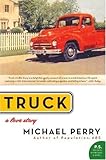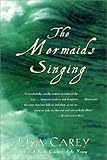I haven’t participated in Sunday Scribblings in a while, and thought I would tonight. The prompt is to write about the book that changed everything.
It’s difficult for me to pin down just one book that was life-changing for me. I read very quickly, when I’m in a reading mood, and shift from book to book so very often, but there are several that stand out as sort of literary milestones in my life.
One of my first introductions to poetry, for example, was Robert Louis Stevenson’s A Child’s Garden of Verses. It may be difficult to imagine the same man who created Treasure Island spinning children’s rhymes, but he did, and he did it well. I remember reciting, “I have a little shadow that goes in and out with me…” with my grandmother, and to this day, when I see a swing-set in a playground or park, “How Do You Like to Go Up in a Swing?” races through my brain. At about the same time, though, I was also very much in love with Maurice Sendak’s Where the Wild things Are, and Judith Viorst’s Alexander and the Terrible, Horrible, No Good, Very Bad Day. I still love both.
From Stevenson, my mind flows naturally to A. A. Milne. My mother would happily remind me, where she here while I was writing this, that when I was still learning to read, I pronounced it as “Ah Ah Milne.” In my defense, I was only four. For several years in a row, my aunt Patti, my “book aunt,” gave me another volume of Milne for each birthday and Christmas, so it was no surprise that I received his book of verse, Now We Are Six when I turned six. It wasn’t any less wonderful for being predictable.
From Milne we jump ahead a bit, to Laura Ingalls Wilder. Not far ahead, mind you. I think I read the vast majority of the Little House books when I was seven, which was not long after the television show began. I watched the show religiously, of course, but I have always preferred the books. Several years ago, as a newlywed and new resident of South Dakota, I re-read the entire series, including some of the books that I hadn’t read as a child (specifically On the Way Home). While the language is simple in the extreme, Wilder’s stories are really universal, and reading them while walking on land where she had walked made them seem that much more “real.”
At about the same time I was reading Wilder, I was also reading the Hardy Boys and Nancy Drew series, and my mother had begun reading Little Women to me, a chapter at a time. The mysteries were great, and I enjoyed them, but it was Alcott’s work that really became part of my soul. I wanted to be Jo March. Sometimes, I still want to be Jo March. I boggle at the notion that I eventually married a man two years my junior – I always dated older guys before Fuzzy, and thought that was where my life’s plan was leading me. Fuzzy has an old soul though, so maybe that’s why we fit. That and he puts up with me, grounds me…but I digress.
Little Women would be the last book my mother would read aloud to me at bedtime, and midway through it, I fired her. I don’t remember her reaction, I just wanted to finish the story, and the whole chapter-a-night thing was just not working for me any more, but the year after, I found out that something else did work for me: science fiction. My first foray into the genre was through Madeleine Lengle’s A Wrinkle in Time, which was given to me when my mother and I were having an overnight with one of her friends. In my head, I was lying on an old quilt in a loft on a rainy night, reading a hardcover version of this book and eating coffee ice cream, but I think the loft part is imaginary, because it’s the kind of book that feels like it SHOULD be read in a loft.
When I was nine or ten, I discovered Judy Blume – as did every nine-or-ten-year-old in my generation. As an adult, I would read Summer Sisters which was meant for the adult women who loved Blume as children, and I vaguely recall enjoying it, but no more or less than anything else I’d read at that time. Other books from elementary school that stuck with me, however, are Louise Fitzhugh’s Harriet the Spy, and
E. L. Konigsburg’s From the Mixed-Up Files of Mrs. Basil E. Frankweiller. The former is what cemented my habit of keeping notebooks, and always using my middle initial (and, I might add, got me hooked on tomato sandwiches), and the latter simply delighted me. If you’ve never read it, it’s about two children, Claudia and James Kincaid, who tire of parental tyranny and run away from home, only to hide in the Metropolitan Museum of Art in Manhattan.
Junior High School brought me to Douglas Adams. I will leave it at that. Let’s just say, the Hitchhiker’s Guide and I go way back.
High School found me biking to the library every weekend to stuff my pack full of books. Anne McCaffrey, Terry Brooks, and “The Cat Who…” were all part of my weekend reading, but so was Kim Stanley Robinson and a lot of Dick Francis, and on a long bus ride home from a week at the Ashland, OR Shakespeare Festival that I made the acquaintance of one Nero Wolfe, and fell into a love affair with the misogynistic gourmand that would last for decades.
As an adult, it’s been nonfiction that has been most meaningful. Kathleen Norris helped me understand my husband’s family, with Dakota: a Spiritual Geography, and The Cloister Walk helped me embrace my own spirituality. Madeleine L’Engle’s been a continual presence, both with her fiction – Certain Women is a favorite – and her nonfiction (I’ve re-read the four Crosswicke Journals more than once).
Right now, I’m reading a lot of Michael Perry, in fact, I just finished Truck: a Love Story and started reading Coop, and I think he’s an author I’ll keep near me for a while.
Books are my friends, as much as people are, and through them, I’ve visited exotic locales, picked up new uses of language, and learned to see the world differently. There’s no way I could ever select just one that changed my life. They all do. It’s just that some of the changes are fleeting, like a wistful smile, while others become ingrained in my brain, and body, heart, mind, and soul.



